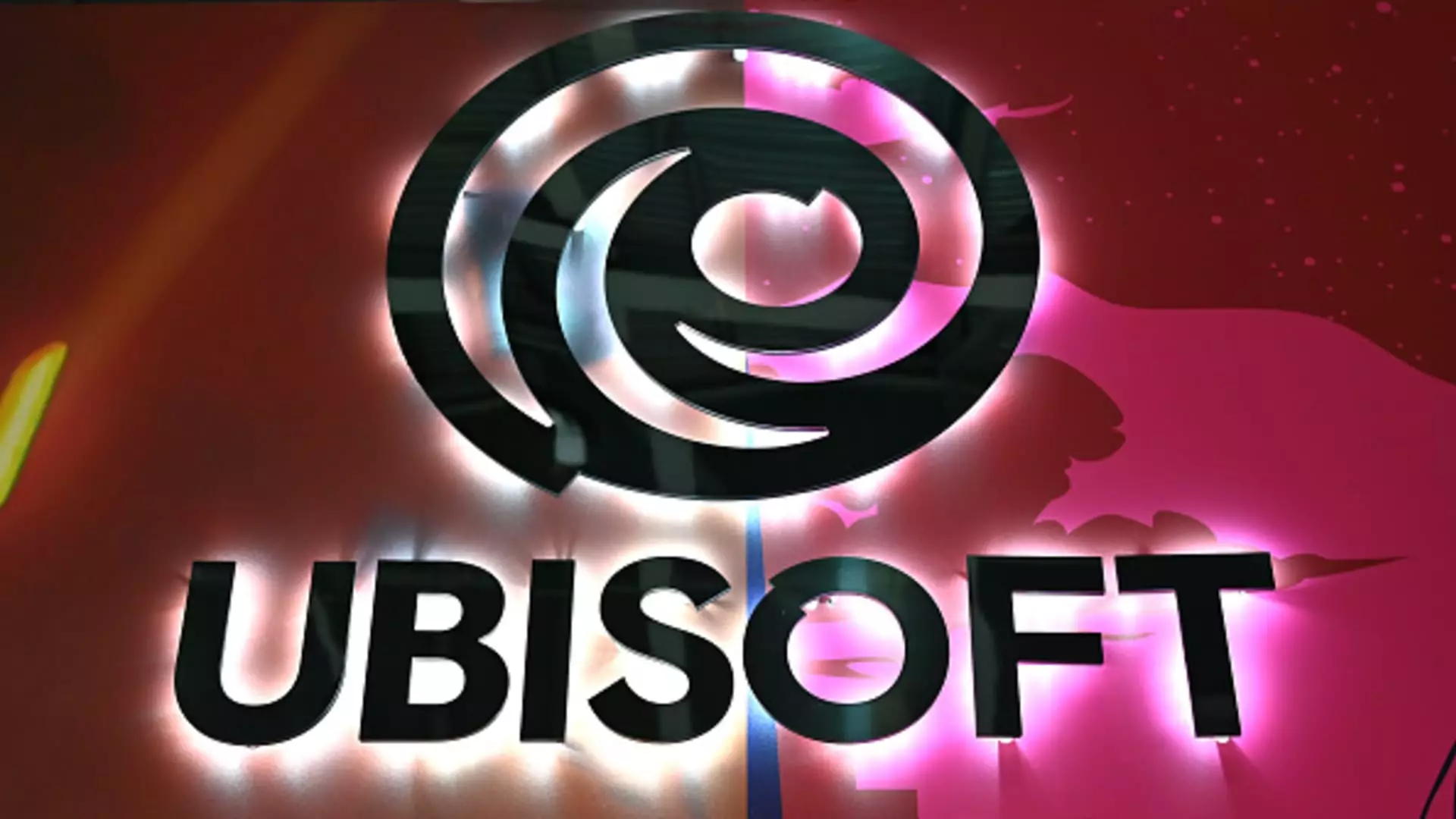On a remarkable day for investors, shares of Ubisoft, the renowned French video game publisher, skyrocketed by over 30% after news emerged of a possible buyout led by Tencent and the company’s founding Guillemot family. According to Bloomberg News, these minority shareholders are exploring various options, with a primary focus on the potential of taking Ubisoft private. This surge in share prices reflects a combination of investor optimism and concern, particularly given that Ubisoft has struggled significantly, losing more than half of its market value within the year.
The discussion of a buyout comes against a backdrop of intense scrutiny regarding Ubisoft’s performance. The company, well-known for its blockbuster franchises such as “Assassin’s Creed,” has seen its shares oscillate to decade lows. Such peaks and troughs in stock performance are often indicative of larger underlying issues that investors are quick to react to. The question now looms: is this spike a momentary blip or the start of a longer recovery trajectory for the beleaguered publisher?
The notion of a buyout from Tencent and the Guillemot family draws attention not only to Ubisoft’s financial status but also to its strategic direction. Both Tencent and the Guillemot family hold minority stakes, making them well-acquainted with Ubisoft’s operations and challenges. By possibly aligning their interests to take the company private, they may aim to implement significant changes without the pressure of public market scrutiny. Such a move could allow for a more focused strategy that addresses the gaming giant’s recent difficulties, particularly around its game pipeline and management concerns.
Furthermore, Tencent’s involvement is noteworthy. As one of China’s largest tech firms, Tencent’s investment history is robust, particularly in the gaming sector. Their resources and understanding of market dynamics could provide Ubisoft with a much-needed lifeline, especially as the company has reported disappointing demand for recent game releases, including “Star Wars Outlaws.” The potential partnership represents more than just financial backing; it could provide strategic guidance as well.
Despite the optimistic turn of events in the stock market, Ubisoft faces numerous challenges that cannot be overlooked. The company recently announced that it would delay the release of “Assassin’s Creed Shadows” due to “softer than expected” demand for its games. This situation is compounded by a downward revision of its net bookings guidance for the fiscal year, highlighting a disturbing trend of underperformance that has left investors rattled.
The company’s leadership under CEO Yves Guillemot has come under fire, especially after activist investor AJ Investments garnered support from 10% of Ubisoft’s shareholder base, advocating for management changes. The criticism outlines a significant lack of confidence in existing strategies, with calls for a re-evaluation of the company’s leadership and direction. With global market conditions becoming increasingly challenging, securing a recovery will require innovative solutions and perhaps a complete overhaul of their approach to game development.
Ubisoft’s troubles are not standalone; they align with broader trends impacting the video game industry. The global gaming market is projected to grow by just 2.1% next year, a sharp decline from the explosive growth witnessed during the pandemic years. This shift has led gamers to increasingly invest their time in older titles rather than new releases, a trend that has undoubtedly squeezed revenues and dampened returns on investment for publishers.
As analyst James Lockyer highlighted, the combination of overwhelming choices in gaming and economic pressures on consumers means that spending habits are shifting rapidly. For Ubisoft and similar companies, adapting to this changing landscape while rejuvenating their upcoming releases may be critical to regain consumer trust and interest.
Ubisoft stands at a pivotal crossroads. The recent surge in stock associated with speculation around a potential buyout offers a glimmer of hope in a time fraught with challenges. However, the underlying systemic issues within the company—ranging from management to market dynamics—pose significant risks that require immediate attention. As Ubisoft navigates this precarious terrain, the coming weeks and months will be crucial in determining whether this potential buyout is merely a temporary relief or the beginning of a comprehensive turnaround in the company’s fortunes. The future of Ubisoft, now more than ever, hangs in the balance.

